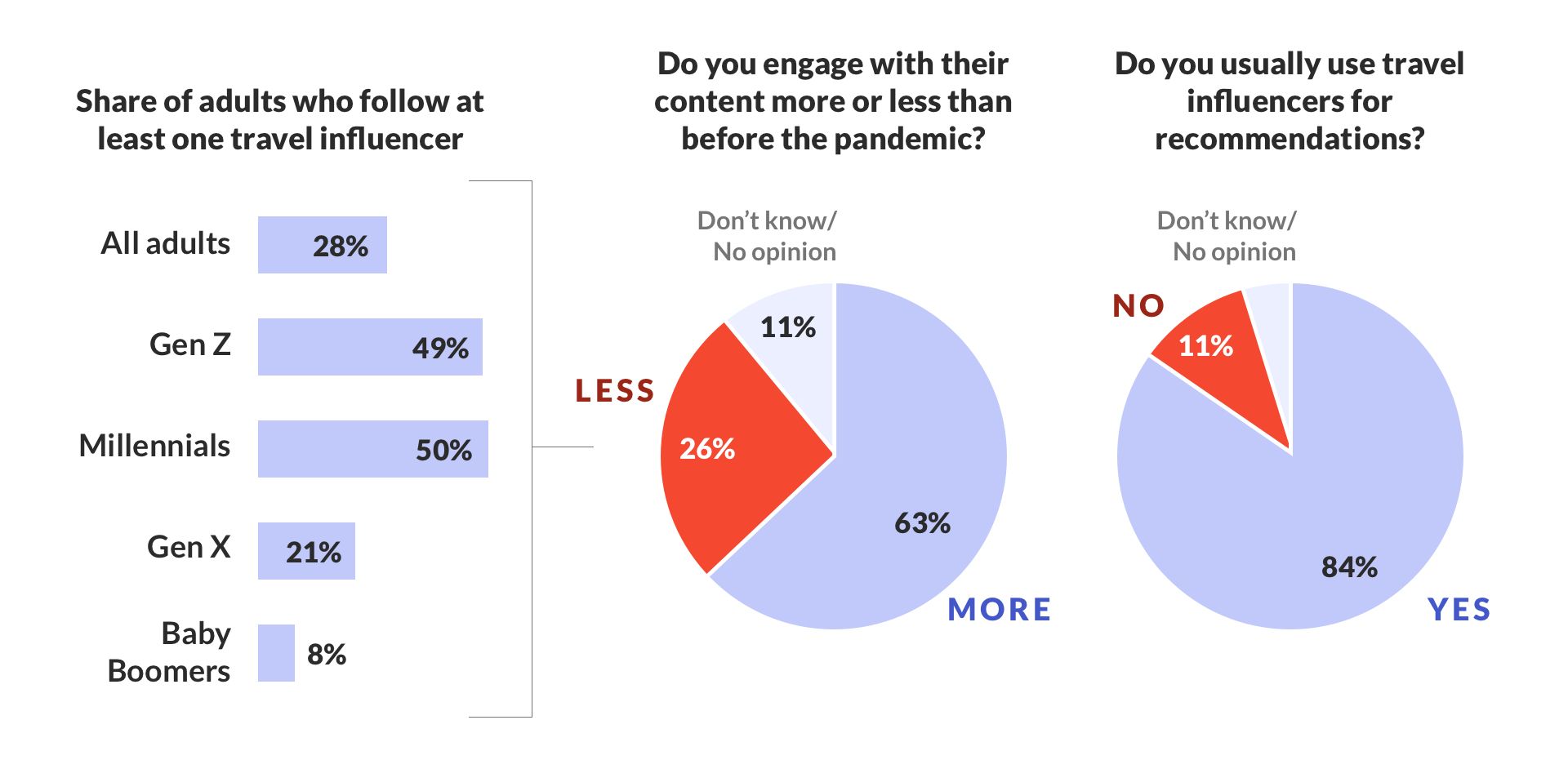Before digitalization took over, people turned to physical travel agencies for travel information. But those days are over to the majority of adults, and most people are looking online to plan their trips. But what types of digital channels do different generations use to find accurate information?
A survey was conducted among 2200 adults. It showcases how 57% say their go-to resources are sites such as Tripadvisor and Expedia. But Millennials (born 1981-1996) are more likely to rely on social media, although they still favor travel sites. Gen Z (born after 1996) are as likely to use social media for vacation planning, as they are to use traditional travel sites.
The majority of respondents said they don’t follow travel influencers on social media. Although, almost 50% of Gen Z and Millennials follow at least one. They turn to influencers for recommendations and engage with their content, such as reviews and posts. These two generations are more likely to use social media than they are to seek information from travel organizations.

The graphs illustrate clearly that travel influencer marketing is becoming more popular. Not only because of digitalization, but the pandemic has contributed as well. Early in the pandemic, online video consumption jumped from one hour per day pre-pandemic to four hours per day in April 2020. Consumer behavior has shifted dramatically, and travel organization have adapted their strategies to stay top of mind during one of the most difficult periods in the history of travel industry.
Embracing digital and influencer marketing can help you communicate with travelers effectively. Combining the two strategies can deliver content to consumers that current campaigns may not be reaching.

